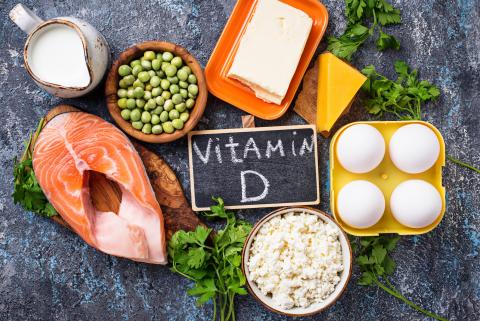Vitamin D is a very necessary component of life. Vitamin D is not actually a vitamin, but a prohormone or precursor to a hormone. Vitamins cannot be made by the body, but vitamin D can be made by exposure to the sun. You can also obtain vitamin D from foods and supplements. We know that it is necessary for strong bones and teeth and it can also help to prevent type 1 diabetes. There are also other things it can help with and if you are deficient you may experience issues.
Benefits
Vitamin D is known for its role in promoting healthy bones and teeth. It also supports the immune system and lowers your chance of getting the flu and it regulates insulin levels. It also helps to support lung function and cardiovascular health. Beneficial levels should be above 20 ng/ml, and it is recommended to take at least 2000 IU to achieve that blood level daily with 4000 IU as the safe upper limit.
Deficiency
Getting sick is one of the most common ways to know you may be deficient in vitamin D. You may also feel fatigue and tiredness due to a low level of vitamin D. If you are deficient in vitamin D, you can have high blood pressure due to a stiffening of arterial walls. You can also obtain food allergies at a younger age and it may exacerbate asthma as well.
Since vitamin D is necessary for bone health, if you are deficient, you may experience bone and lower back pain. This can be resolved with supplements of vitamin D. Depression is also a side effect of low vitamin D levels. Wound healing can also be slow if you are lacking vitamin D.
Foods
There are several foods that are high in vitamin D and you should make sure a few are in your diet. One of the top foods is an egg, with 40 IU of vitamin D. Caviar is also an option at 33 IU. Mushrooms are another excellent source at 400 IU per 3 ounces. Most of us get fortified vitamin D milk and yogurt in our diet as well. Fish is also another great way to obtain vitamin D.
Sun
We tend to stay out of the sun, due to the damage that UVA/UVB rays can cause to our skin. We even use sunblock to block all rays and thus the production of vitamin D. It is recommended to obtain sunlight for 10-30 minutes at high noon to be most efficient at least three times a week. You should also ensure that a third of your body area is exposed to ensure you make enough vitamin D. If you will be out in the sun longer than 30 minutes, apply sunscreen towards the end of your 30-minute period to prevent burning. You can always keep a hat and sunglasses on to prevent sun from aging your delicate face and just expose the other parts of your body.



